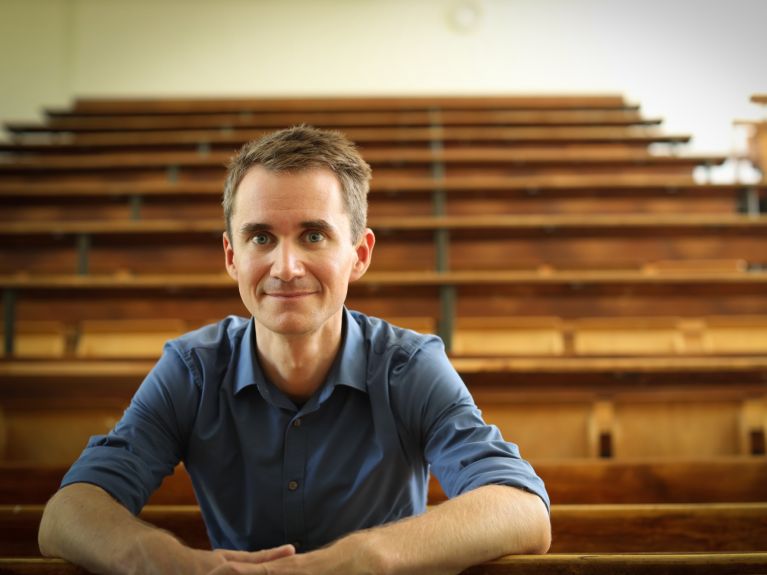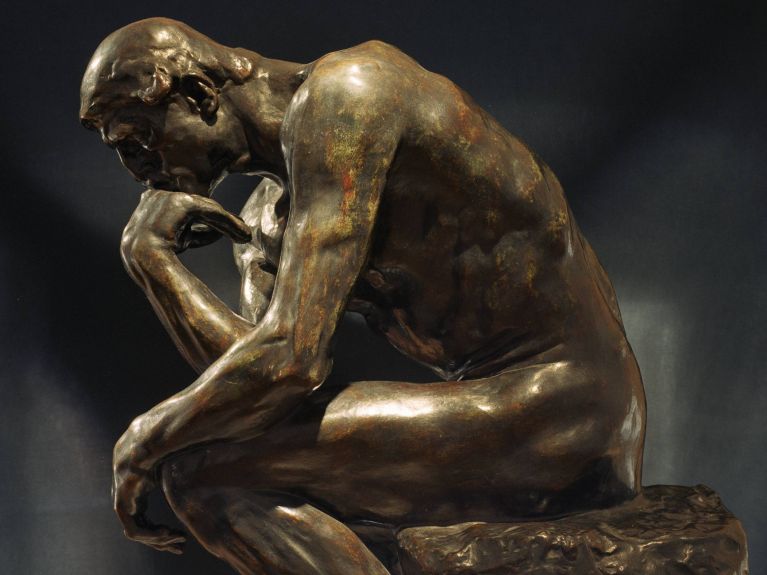“Good ideas are always a little uncomfortable”
People rarely come up with ideas when sitting at a desk. Neuroscientist and German Science Slam champion Henning Beck explains why our brain prefers to be on the go.

Mr Beck, what happens in the brain when an idea is “sparked”?
When we have a flash of inspiration, the very areas of the brain that are key to language, memory, attention and decision-making become active. Just before the insight occurs, they synchronise. It’s as if the brain were fitting two puzzle pieces together: a problem is solved in a new way through prior experience, surprising impressions, or a reinterpretation of the situation. We experience this as a positive feeling because messenger substances are immediately released that reward us for the insight.
What’s the best trigger for good ideas?
Ask questions! From an early age we’re trained to give answers, but it’s questions that change our perspective. The more questions you ask, the greater the number of possible angles you have from which to tackle a problem. Many people think they simply need to wait for inspiration to strike – for the muse to kiss them. But it’s more like what Louis Pasteur said: “Chance favours the prepared mind.”

Is it like Auguste Rodin’s famous sculpture The Thinker? The man resting his chin on his hand in deep contemplation?
No. Hardly anyone comes up with good ideas when sitting hunched over in thought. It’s better to be on move: taking a shower, driving, walking the dog. For one thing, our thinking changes when our surroundings change. And we have more mental space to drift when we’re carrying out automatic, routine tasks.
Where Rodin’s figure does have a point is that we all need time to ourselves to organise our thoughts – free from distractions and sensory overload.
And another rule applies: creative moments are almost always screen-free. It’s been scientifically proven that people have fewer good ideas when they’re in a video call, because screens force our gaze in one direction. In reality, it’s when people let their eyes wander freely around the room that a creative thought occurs.
Dieses YouTube-Video kann in einem neuen Tab abgespielt werden
YouTube öffnenThird party content
We use YouTube to embed content that may collect data about your activity. Please review the details and accept the service to see this content.
Open consent formArtificial intelligence is taking over more and more tasks. Does this mean human creativity is at risk of withering away?
AI covers the areas humans aren’t good at – the “easy problem” of creativity. Want to try out 20 new marketing slogans? Ask a language model! Need ten design drafts? AI can take care of that. But what AI can’t replace is the “hard problem” of creativity – questioning business models, products and processes. Good ideas are always a little uncomfortable; they challenge familiar ways of thinking. That’s how we create something new.
About: Henning Beck
The neuroscientist Henning Beck holds a PhD and has written several popular science books on brain research, which have also been successful internationally. He’s also the German Science Slam champion.



